QUICK REFERENCE
- Date: October 19, 2025 (Note: Date will vary each year)
- Liturgical Season: 29th Sunday in Ordinary Time, Year C
- Readings: Exodus 17:8-13 | Psalm 121 | 2 Timothy 3:14-4:2 | Luke 18:1-8
- Theme: Persistent prayer requires exhausting work, community support, and the counterintuitive choice to keep looking up when everything pulls our gaze down.
- INTRODUCTION TEXT, which you are welcome to read aloud before the Liturgy of the Word, is placed at the very end of this post.
THE READINGS IN CONTEXT
First Reading: Exodus 17:8-13 – Moses’ Raised Hands
When & Where: The wilderness at Rephidim, immediately after Israel’s bitter complaint at Massah and Meribah where they asked, “Is the LORD among us or not?” (Exodus 17:7).
What’s Happening: This is Israel’s first battle they must fight themselves. At the Red Sea (Exodus 14), Moses told them “Stand still… the LORD will fight for you; you need only be silent.” But now – no more passive waiting. They must engage AND depend on God simultaneously.
Amalek attacks without provocation. They’re descended from Esau (Genesis 36:12), making them relatives of Israel, but they’ve become Israel’s archetypal enemy. Rabbinic tradition teaches that Amalek attacks whenever Israel’s faith weakens – and this comes right after their spiritual crisis of doubt.
Key Insight: This isn’t magic. The rabbis in Mishnah Rosh Hashanah 3:8 ask directly: “Did the hands of Moses make war or break war?” Their answer: “Rather, the verse teaches that as long as Israel looked upward and subjected their hearts to their Father in Heaven, they prevailed, but if not, they fell.”
Moses’ raised hands were a visible sign that directed the people’s gaze UPWARD. When his hands dropped, they stopped looking up, stopped depending on God, and started losing ground. The word translated “steady” is actually “emunah” – his hands remained in faith/faithfulness until sunset.

Responsorial Psalm: 121 – “I Lift Up My Eyes”
Type of Psalm: Pilgrimage song of confidence
Key Line: “I lift up my eyes toward the mountains; whence shall help come to me? My help is from the LORD, who made heaven and earth.”
How It Connects: This is the prayer of someone who has learned Moses’ lesson – that help comes from looking UP, not from our own hands or the enemy’s swords. The psalm echoes the physical posture of Israel watching Moses’ raised hands: eyes lifted, help from the LORD, the guardian who neither slumbers nor sleeps.
Second Reading: 2 Timothy 3:14-4:2 – Hold On to What You Know
When & Where: Paul’s final letter, written from prison, likely around 67 AD. Paul knows his execution is imminent (4:6-8). This is his last charge to his spiritual son Timothy.
What’s Happening: Timothy is young, facing opposition, and tempted to give up. Paul’s counsel: “Remain faithful to what you have learned… remember who your teachers were… you have known the sacred Scriptures… be persistent whether it is convenient or inconvenient.”
Key Insight: Like Moses gripping his staff – the tangible reminder of God’s intervention – Paul tells Timothy to hold on to what he knows to be true. When everything feels uncertain, when you’re exhausted, when prayer seems useless: hold the staff. Remember the scriptures. Keep your hands raised even when they grow heavy.

Gospel: Luke 18:1-8 – The Persistent Widow
When & Where: Jesus teaching his disciples as he journeys toward Jerusalem and the cross. This parable appears in a section focused on the coming kingdom and the need for readiness.
What’s Happening: Jesus tells this story explicitly “about the necessity for them to pray always without becoming weary.” A widow – the most vulnerable person in ancient society with no legal standing or power – keeps coming back to an unjust judge. She has no leverage except her refusal to give up.
Key Insight: The judge gives in not because of justice or compassion, but because “she keeps bothering me.” The Greek suggests she’s literally pestering, exhausting, wearing him down. Jesus’ point: if even an unjust judge responds to persistence, how much more will God respond to his chosen ones “who call out to him day and night”?
But notice Jesus’ final question: “When the Son of Man comes, will he find faith on earth?” The issue isn’t whether God will answer – it’s whether we’ll keep our hands raised long enough to see it.
THE COMMON THREAD
All four readings converge on one reality: Persistent intercession is exhausting work that requires looking up when everything pulls your gaze down.
- Moses must keep his hands raised for hours – until sunset – despite physical exhaustion
- The psalm names the posture: “I lift up my eyes”
- Paul charges Timothy to be persistent “whether convenient or inconvenient” (when you’re tired, when it feels useless)
- The widow keeps coming back despite repeated rejection
This isn’t about earning God’s favor through endurance. It’s about the counterintuitive choice to keep looking up – away from the wounds at our feet, away from our own inadequacy, away from the enemy’s swords – toward the One who neither slumbers nor sleeps.

THE HUMAN REALITY: Moses’ Inner Battle
Here’s what we often miss when we sanitize biblical heroes: Moses never wanted this job. When God called him at the burning bush (Exodus 3-4), Moses repeatedly said “Send someone else.” He was a survivor – the only Hebrew baby who lived – carrying that burden of “Why me? What do I owe for my rescue?”
By Exodus 17, Moses is drained. The people have just finished questioning (again) whether God is even among them. Moses has this beautiful, intimate relationship with God, yet his own nation constantly tests him, doubts him, complains to him. And now he can’t even rest – he must stand on a hill for hours with his arms raised.
Imagine Moses gripping that staff. It’s not just a stick. It’s tangible evidence – the same rod that struck Egypt, that parted the sea. When he feels forgotten, when he doubts, when he’s exhausted beyond measure, he holds onto what he knows to be true about God’s intervention in his story and in Israel’s story.
This is the same staff that will later be raised over the bronze serpent (Numbers 21) when Israel is bitten by snakes. Again, the healing is counterintuitive: everything biting you, wounding you, attacking you is DOWN at your feet. The natural response is to look at the wounds, look at the pain, look at the enemy. But healing comes from lifting your gaze to what God has raised up.
Here’s the paradox Moses embodies: You cannot rest FROM God. When we feel unheard, when prayer feels tiresome, the temptation is to put it down, to stop, to rest from the effort. But putting it down doesn’t rescue us – the enemy just gains ground. The only way through exhaustion is community (Aaron and Hur supporting his arms) and persistence (holding on until sunset).
Moses is lonely in this moment – surrounded by battle noise, by doubt still ringing in his ears, by physical pain – until his community arrives to literally hold him up. This names something crucial about intercession: even the greatest need support. The work of keeping your hands raised, your gaze lifted, your heart turned upward – this is not solo work.

BRIEF REFLECTION
We’re often told to “pray without ceasing,” but these readings tell us what that actually costs: tired arms, repeated rejection, the loneliness of standing on a hill while battle rages below. Prayer isn’t always sweet and easy. Sometimes it’s hard work – work that exhausts us, work that requires community to sustain.
But notice what these readings DON’T say. They don’t tell us prayer fails when we get tired. They don’t shame Moses for having heavy hands or the widow for being a pest. Instead, they show us that God works precisely in our exhaustion – when Aaron and Hur step in, when the judge finally responds, when our gaze is forced upward because we have nowhere else to look.
The question Jesus asks haunts us: “When the Son of Man comes, will he find faith on earth?” He’s asking: Will he find people still standing on the hill with their arms raised? Will he find widows still knocking? Will he find those who held onto what they were taught even when it felt futile?
Persistent prayer isn’t about earning God’s attention. It’s about training our gaze – learning to look up when everything pulls us down, learning to hold on to what we know is true when feelings betray us, learning to let our community support us when our hands grow too heavy to lift alone.
INTRODUCTION TEXT
(Can be read aloud before Liturgy of the Word)
Today’s readings show us what faithful prayer actually looks like: not effortless or magical, but exhausting work that requires community support and the counterintuitive choice to keep looking up. Moses must hold his arms raised for hours until Aaron and Hur come to support him. A widow must return again and again to an unjust judge. Paul charges Timothy to persist whether convenient or inconvenient. As we listen, ask yourself: Where are my hands growing heavy? Who in my community needs me to be their Aaron or Hur? And where am I being called to lift my gaze toward the One who neither slumbers nor sleeps?




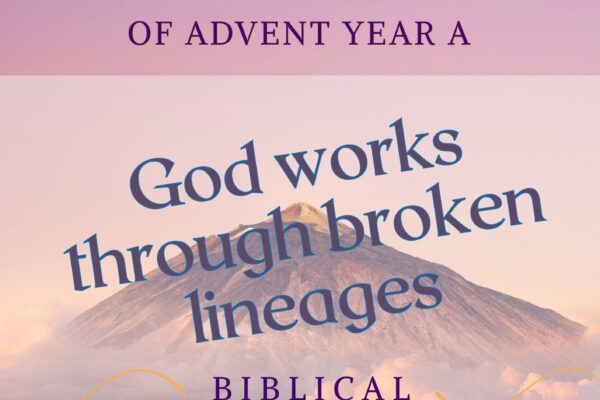
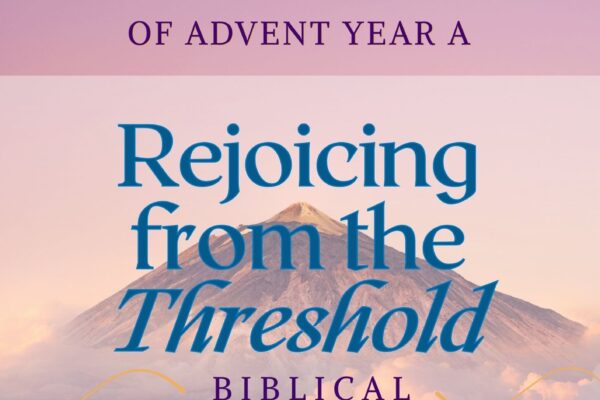


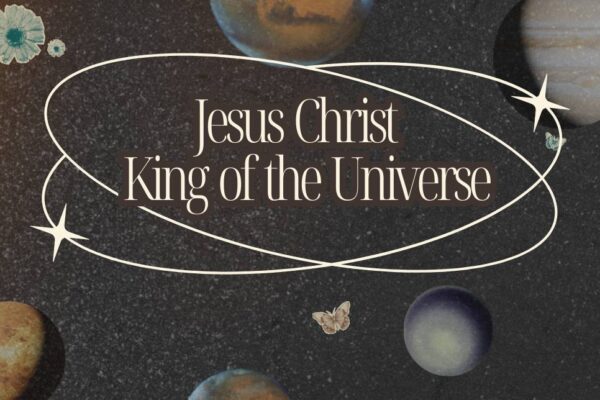


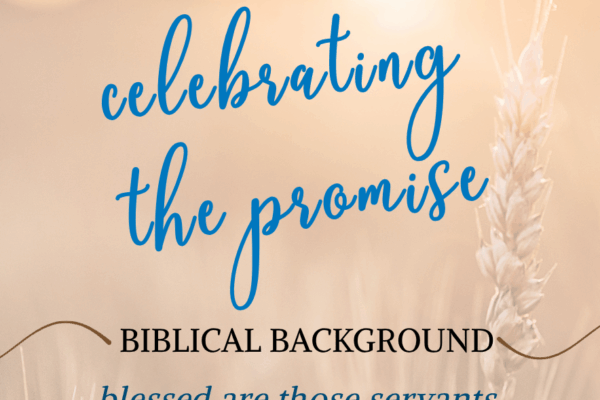
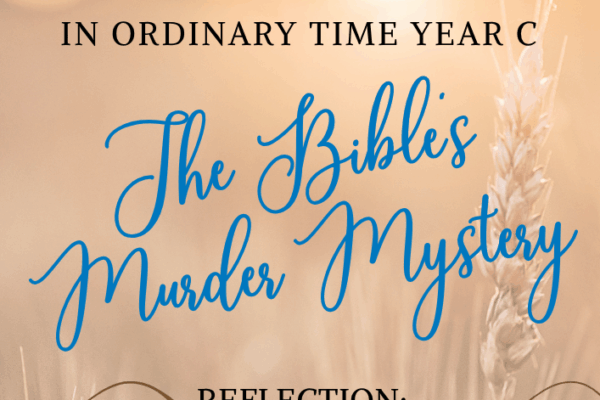

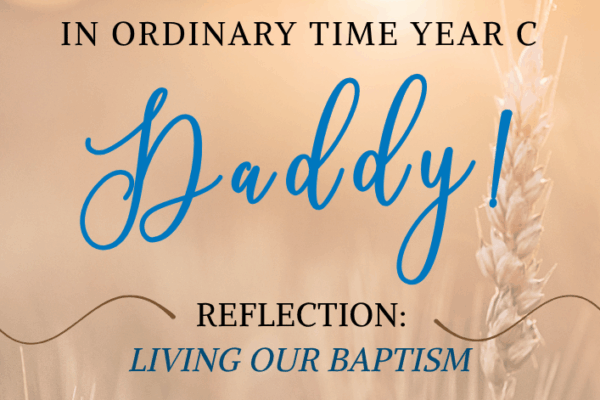
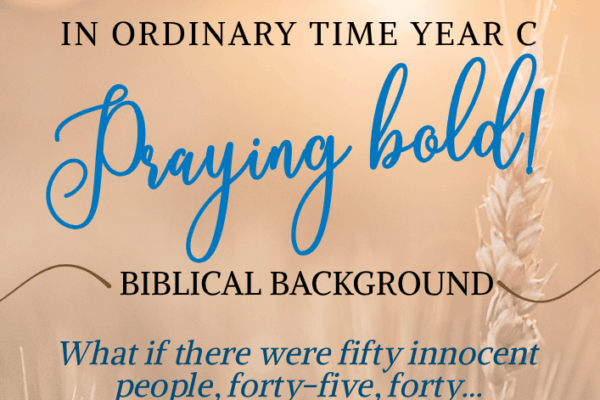
One thought on “Look Up! – 29th Sunday in Ordinary Time (Year C) – Biblical Background”